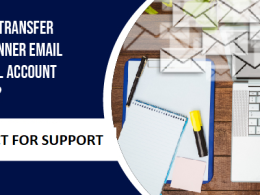In this day and age, our digital lives are intertwined with our physical ones. From browsing social media to online banking, we rely heavily on the internet for many aspects of our daily routine. With this increased reliance comes an increased risk for cyber threats, making it essential to know how to secure your online presence. Whether you’re a business owner or simply someone who wants peace of mind when surfing the web, read on for some best practices that will help you stay ahead of the game in today’s digital landscape.
Online Security
Online security is a top priority for many people and businesses. Unfortunately, there are many ways to compromise your online privacy and security. This article provides some tips on how to stay ahead of the game when it comes to online security.
1. Use a VPN: A virtual private network (VPN) creates an encrypted tunnel between your computer and the VPN server. This protects your data from being intercepted by hackers or advertisers.
2. Use 2-factor authentication: Two-factor authentication is a common way to increase the security of your account passwords by requiring you to provide something other than just your password when logging in. This could be something like a code sent to your cellphone, or a key fob that you keep with you.
3. Keep up with software updates: Regularly update all of your software applications and antivirus programs so that they are protected against any new threats.
4. Don’t leave confidential information unprotected: Don’t leave personal information such as account numbers or passwords unprotected on public websites or in email messages. Never give out sensitive information over the phone, either!
Cybersecurity Planning
In order to remain safe and secure online, it is important to have a cyber security plan in place. Here are five best practices for securing your online presence:
1. Use strong passwords: A strong password is one that is complex yet easy to remember. Make sure that all of your passwords are different and unique.
2. Protect your computer with antivirus software: Make sure that you have up-to-date antivirus software installed on your computer. This will help protect you from viruses and other malware that could harm your computer.
3. Keep your internet traffic secure: Make sure that all of your internet traffic is securely encrypted using a VPN (virtual private network) or SSL (secure socket layer). This will ensure that nobody can eavesdrop on what you are doing online.
4. Keep track of the locations where you are using the internet: Always keep track of the websites and applications that you are using so that you can be sure that they are safe and reputable.
5. Reset your passwords regularly: It is always advisable to reset your passwords every few months in order to keep them safe and secure.
Social Media Policies
When it comes to social media, there are a few things you can do to stay ahead of the game. By following these practices, you can ensure your online presence is secured and protected from prying eyes.
First, make sure you have a social media policy in place. This document should include guidelines for using the platform, as well as expectations for users. It should be clear to everyone involved what is and is not allowed on social media platforms.
Along with a social media policy, make sure you have an updated privacy policy posted. This document should outline how your company will use user data, what information will be shared publicly, and how users can opt out if they wish. Be sure to also post a link to this policy on all of your company’s social media channels.
Lastly, stay up-to-date on the latest security threats and updates. Make sure your social media platforms are configured with the latest anti-spyware software and firewalls; update account passwords; and refrain from posting personal or sensitive information that could be accessed by hackers.
By following these simple tips, you can create a secure and compliant online presence for your business.
Online Privacy and Safety
There are a few things you can do to help keep your online privacy and safety secure. First, use a strong password and never share it with anyone. Second, don’t use the same login information for multiple websites. Third, avoid clicking on links in unsolicited emails or messages from people you don’t know. Fourth, be suspicious of any requests for personal information, especially if they come from unexpected sources. Finally, stay up-to-date on security patches and always use caution when downloading software from the internet.
Protecting Your Personal Information
To stay ahead of the game when it comes to safeguarding your personal information online, there are a few key practices you can follow.
1. Use a password manager.
A password manager is a great way to keep track of all of your passwords and make it easier to remember them all. This is especially helpful if you have to use different passwords for different websites or services.
2. Use two-factor authentication.
Two-factor authentication helps protect your account from unauthorized access by requiring someone who wants to log in to also provide something like a code sent via text or an app. This extra layer of security is especially important if you have accounts that contain personal information, like bank login credentials.
3. Keep your software up to date and secure.
Make sure your software is updated and installed on devices that you use regularly, and always make sure that the security features are enabled. Install antivirus software, firewall protection, and other security measures on your computers and mobile devices.
Stay up to Date on Technology Trends
Keeping up with the latest trends in technology can be a difficult task, but it’s important to do so if you want to stay ahead of the competition. Here are some best practices for securing your online presence:
1. Use a Secure Password Manager
passwords are one of the most common ways that hackers compromise online accounts. By using a password manager, you can easily generate unique, secure passwords for all of your accounts. This includes your personal email and account passwords, as well as account login credentials for websites and services. A password manager also keeps track of which passwords have been used recently, helping you to avoid reusing old passwords.
2. Use Two-factor Authentication
Two-factor authentication is another security measure that is becoming increasingly popular. This technique requires you to provide both a username and password together when logging into an online account. Security experts often recommend using two-factor authentication whenever possible because it makes it harder for thieves to steal your data or access your account without also knowing your username and password.
3. Keep Your Computer Up-to-Date With Security Updates
Computer security is always changing, so it’s important to keep up with recent updates from software companies and security firms. Make sure to install all available security updates on your computer and keep up with regular anti-virus scans. Regularly updating your software also helps to prevent new types of malware from infecting your device and accessing your personal information.
Conclusion
As the world becomes increasingly information-driven, it is important for business owners to take steps to protect their online presence. By following some simple best practices, you can ensure that your website and social media channels are safeguarded against potential cyberattacks and negative publicity. In addition, taking measures to secure your site may also deter potential thieves who might target your company’s Intellectual Property (IP). As always, be proactive in protecting yourself and your business by using the tips described in this article.












